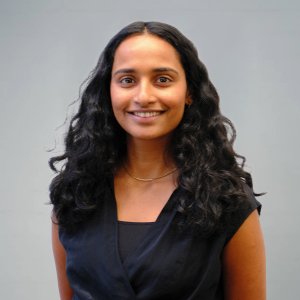
Spotlight on…
Sanjukta Jitendhar, Architect, Mikhail Riches
What’s your current role at your institution?
I work as an architect at Mikhail Riches, where I focus on low carbon and affordable housing. I enjoy projects that range from designing new net zero neighbourhoods to transforming existing buildings, always with the aim of creating housing that truly serves the people who live there.
Which past experiences have helped you the most in your current role?
A mix of practice and research has shaped the way I work. Projects such as net zero affordable housing for Phoenix Community Housing and the refurbishment of Park Hill taught me how technical performance and social care need to go hand in hand. I have worked across scales, from neighbourhoods and streets to terraces and individual homes, and I am passionate about creating diverse typologies that reflect the many different households we have.
What excites you about the research in the Transforming Homes project?
I am excited because the research is about more than upgrading houses – it is about transforming spaces and improving everyday life. Transforming Homes goes beyond a traditional whole house retrofit by bringing together questions of net zero, climate resilience, bio-based materials and community wellbeing in a way that feels holistic, practical and urgent. I value the chance to think beyond individual projects and towards strategies that can help councils, residents and communities transform housing stock at scale with care.
How is your expertise contributing to the Transforming Homes project?
I bring design experience from both new build and retrofit, and this research allows me to shape that knowledge into approaches that are practical and meaningful for residents and councils. I have worked at many scales – from neighbourhood masterplans and estate regeneration to terraces and individual homes – which helps me respond to spatial issues more holistically rather than in isolation. Within Transforming Homes, I value the opportunity to combine research and practice so strategies are not only technically sound and financially viable, but also resilient and capable of improving everyday life.
